Iran hands down protest note to Kuwaiti ambassador over Arash gas field
A senior Iranian diplomat gave a protest note to Kuwait's ambassador to Tehran over the country's "one-sided" statements on the Arash natural gas field, which Iran shares with its southwestern neighbor.
Mohammad Alibek, an assistant to Iran's foreign minister and the head of the ministry's Persian Gulf Department, handed the note to the Kuwaiti envoy Badr Abdullah al-Munikh on Thursday evening, expressing Tehran's dissatisfaction with Kuwait City's approach.
“Making one-sided claims in various statements and through media undoubtedly cannot be a step forward to resolve the issue, and will not establish any rights for the party uttering such assertions,” Alibek said.
The Iranian diplomat added that Tehran thinks that a cooperative and respectful environment, rather than one-sided assertions, could lead to an agreement on the matter.
Alibek also stressed Iran's willingness to begin a new round of talks with the Kuwaiti government to find a mutually agreeable solution to the Arash field dispute.
Munikh, meanwhile, referred to the long-standing and friendly relations between Kuwait and Iran, and highlighted his country's determination to enhance ties with its northeastern neighbor.
The Kuwaiti ambassador also said he would convey the protest to his government and provide Iran with a response.
Earlier this month, Iran reminded Kuwait that unilateral claims on the Arash natural gas field would obstruct the settlement of a territorial dispute over the energy reservoir on the basis of mutual interests.
In a statement on February 14, Iranian Foreign Ministry spokesman Nasser Kan'ani said Tehran has always emphasized that the Arash field row should be resolved through dialogue based on the previous negotiations of experts.
He added that Iran “believes that an agreement on this issue can be reached in an atmosphere of cooperation and respect for common interests.”
A joint statement issued on February 13 by Kuwaiti Emir Sheikh Mishal al-Ahmad al-Jaber al-Sabah and Bahrain’s King Hamad bin Issa Al Khalifah claimed that the gas field is located entirely within the maritime borders of Kuwait and that its natural resources are shared between Kuwait and Saudi Arabia.
The dispute over the Arash gas field, which Kuwaitis call al-Durra, dates back to the 1960s when Iran and Kuwait were awarded overlapping offshore concessions for the field following its discovery.
The dispute has seen several cycles of claims and counter-claims by the parties involved, becoming a key sticking point in relations between the three Persian Gulf neighbors.
The field is estimated to hold 20 trillion cubic feet of gas reserves, which could produce one billion cubic feet per day. Nearly 40% of the Arash gas field is located in Iranian waters.
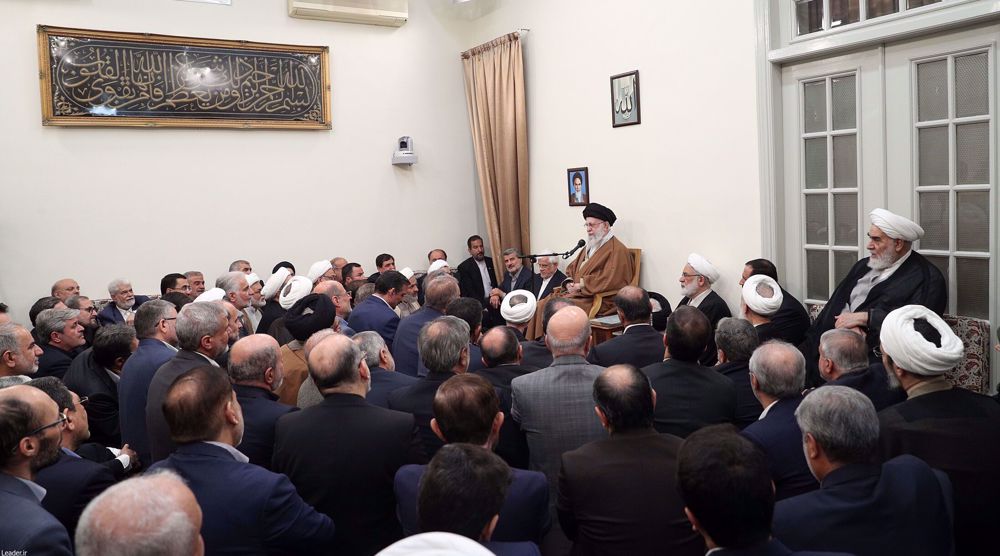
Leader: Indirect Oman talks ‘good’ in early stages but lack of trust 'remains' about other side
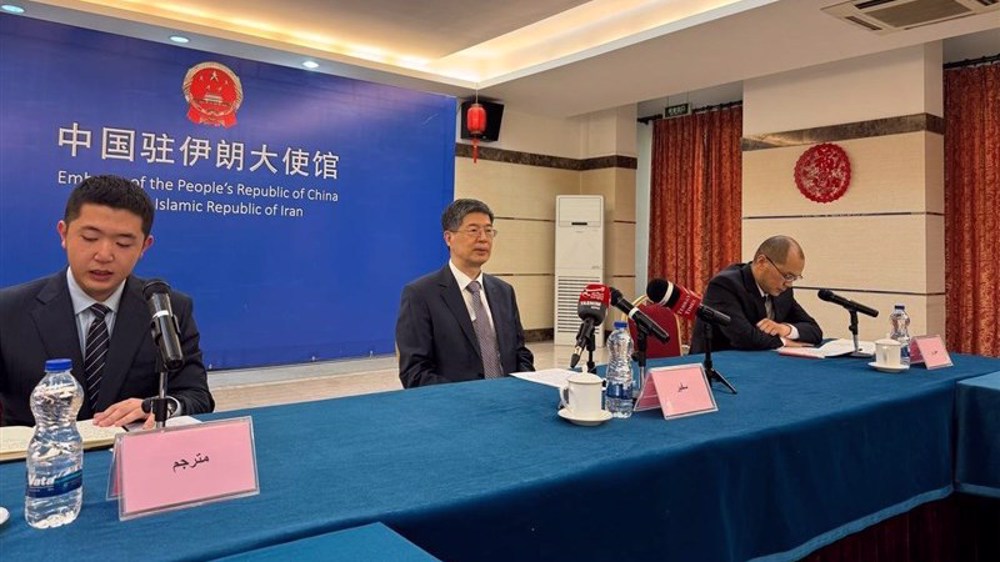
China calls for new Iran deal based on JCPOA; urges US to stop ‘maximum pressure’
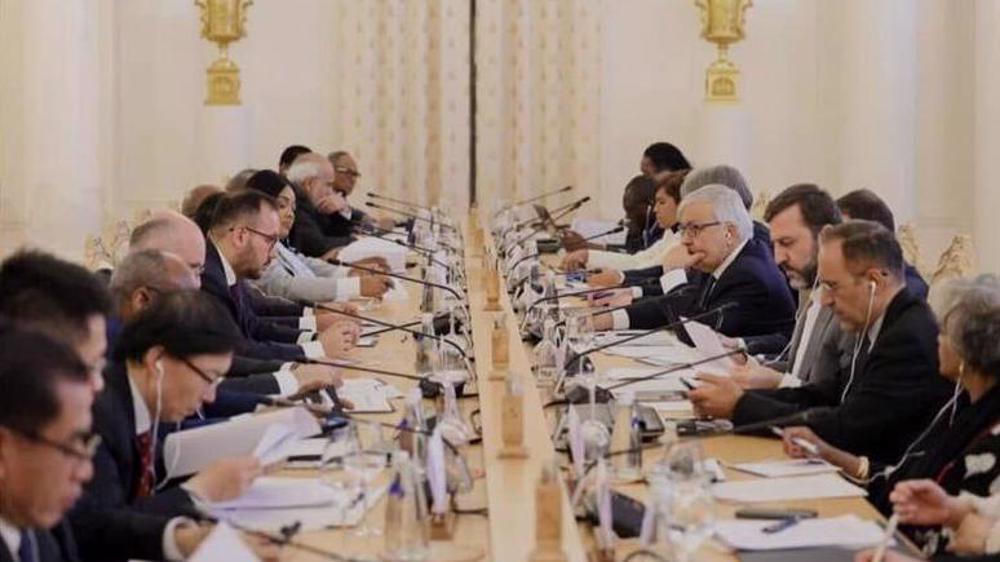
Iranian diplomat says ‘excessive unilateralism’ renders UN ineffectual against certain states
VIDEO | Rally against another Columbia student arrest held in New York
VIDEO | Press TV's news headlines
VIDEO | Tehran-Washington negotiations
VIDEO | Iran leads global push to define terrorism after 25 years of debate
US prepares to arm Israel with 1000s more bombs ahead of ‘vigorous expansion’ of Gaza war
Hamas: Surrender not an option; Netanyahu’s murders aimed at securing political future
VIDEO | Your children will return in coffins torn apart by Israeli missiles: Hamas to captives’ families
Hezbollah censures Israeli settlers’ storming of al-Aqsa Mosque


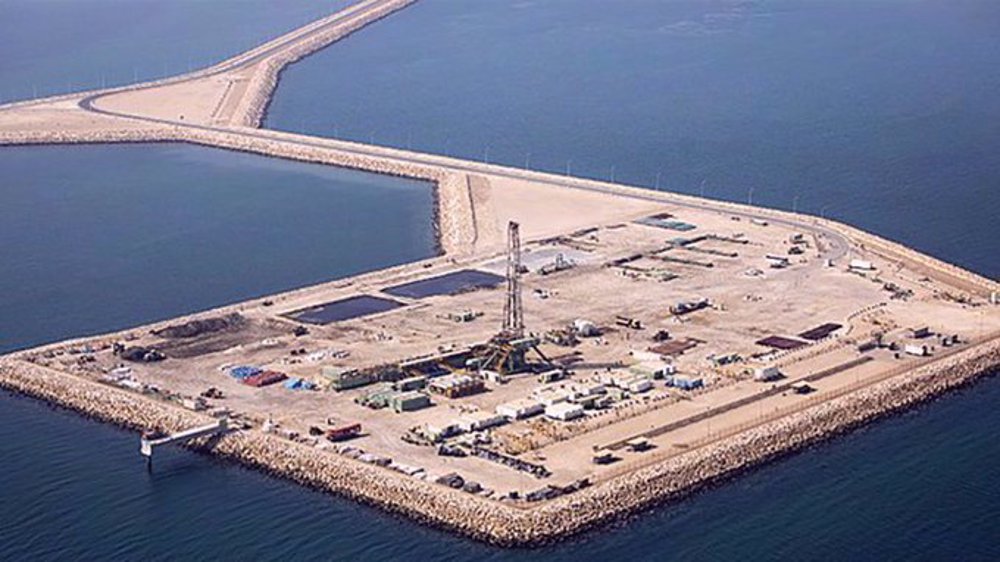
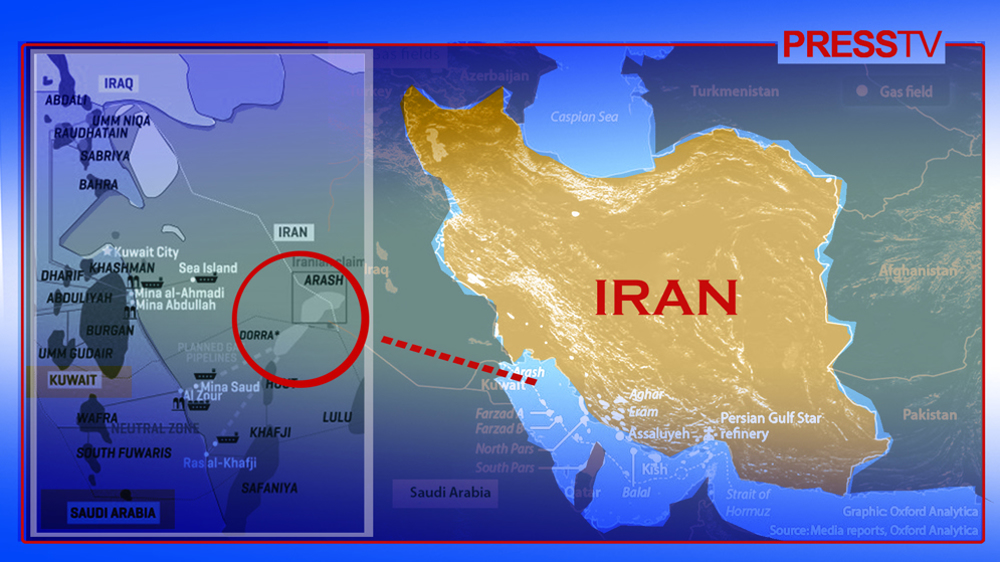



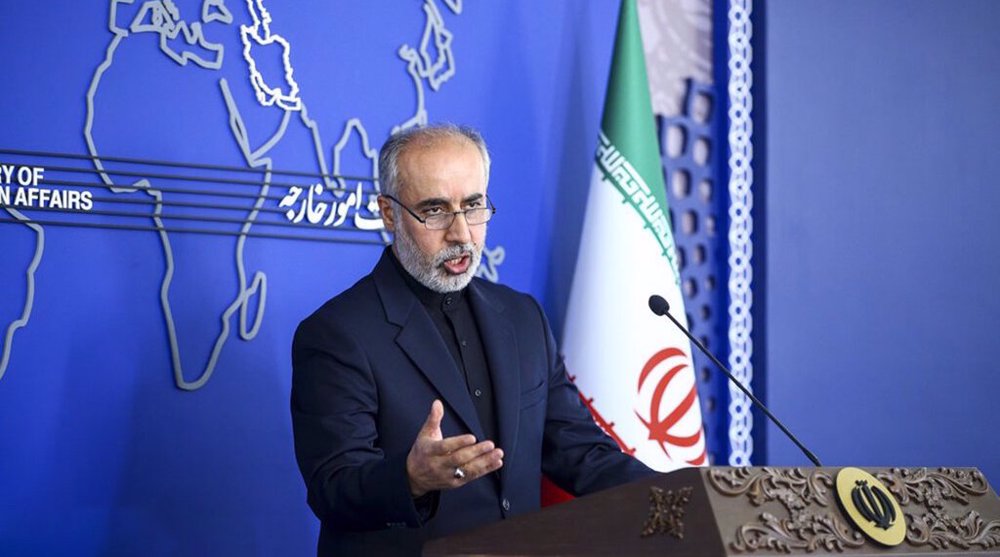
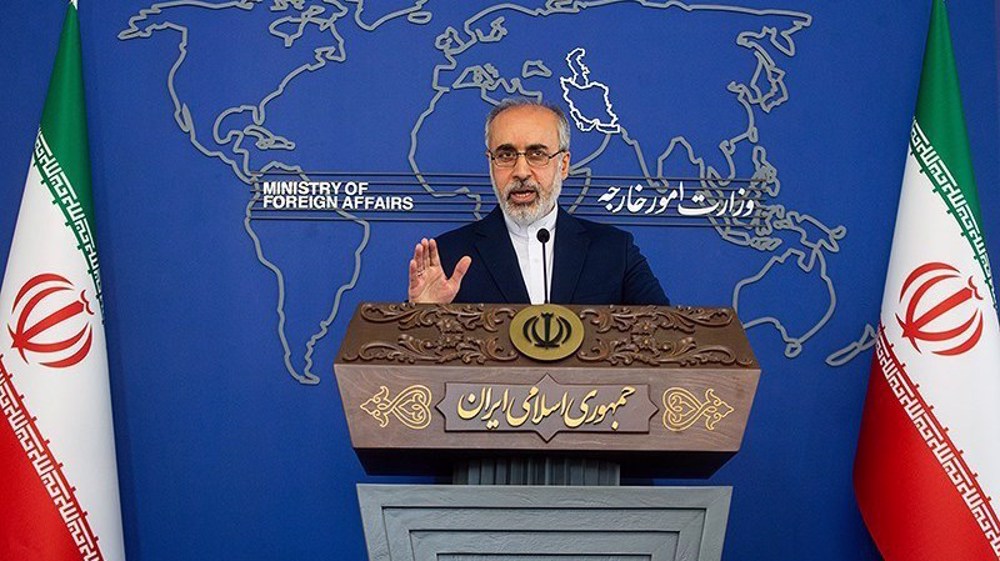
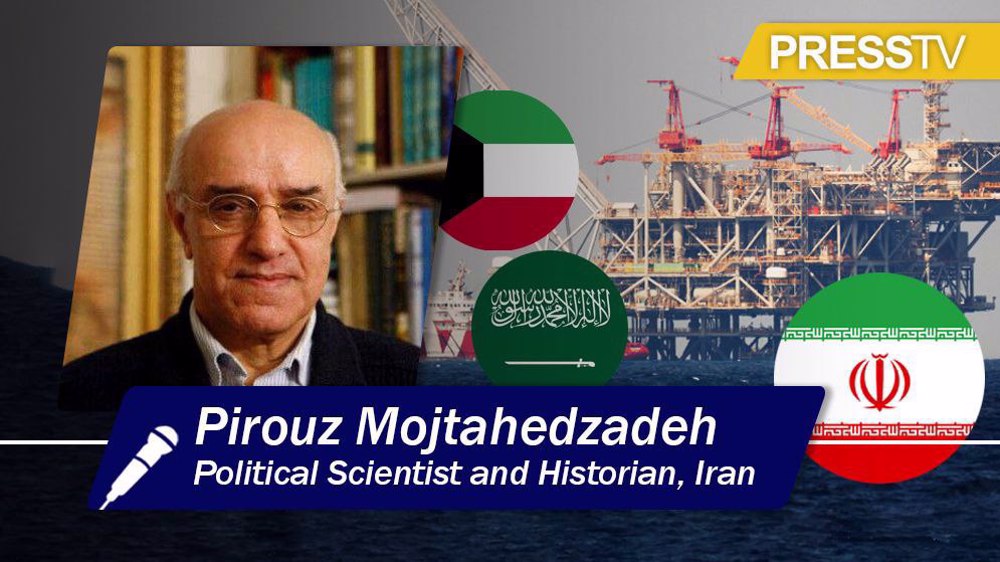

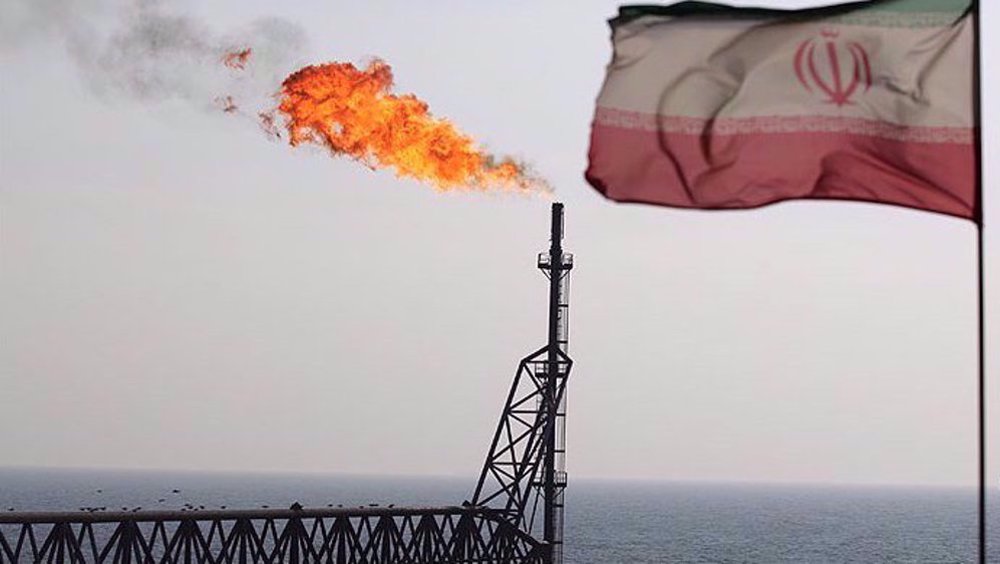

 This makes it easy to access the Press TV website
This makes it easy to access the Press TV website